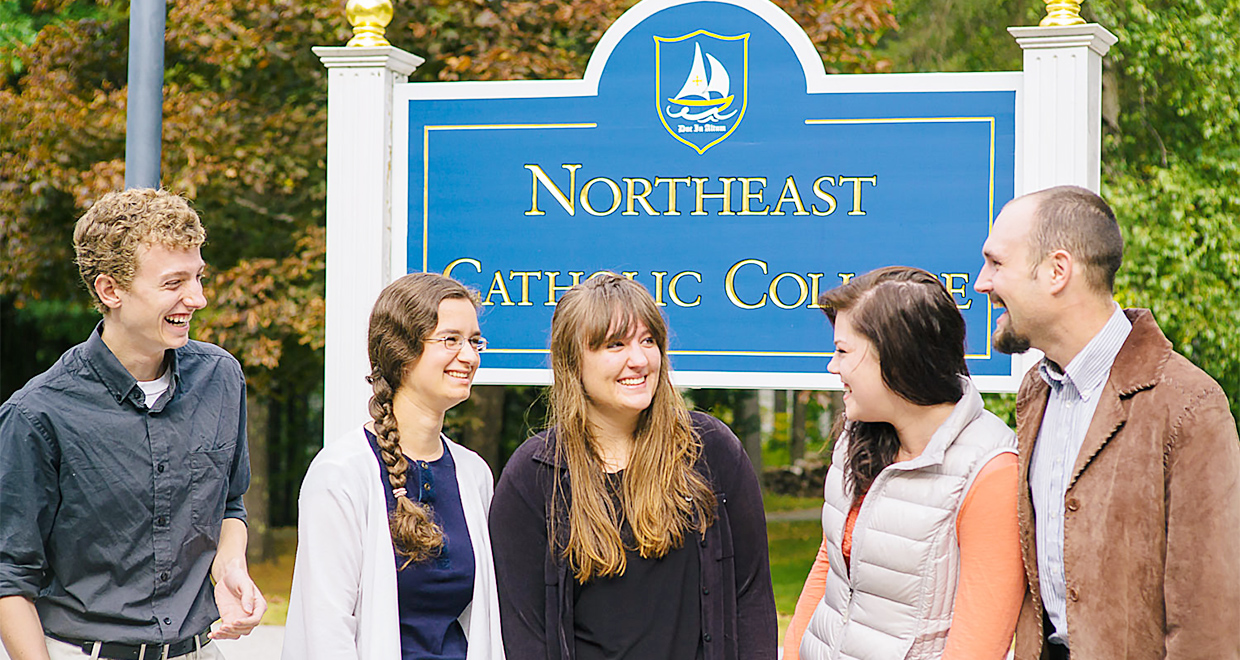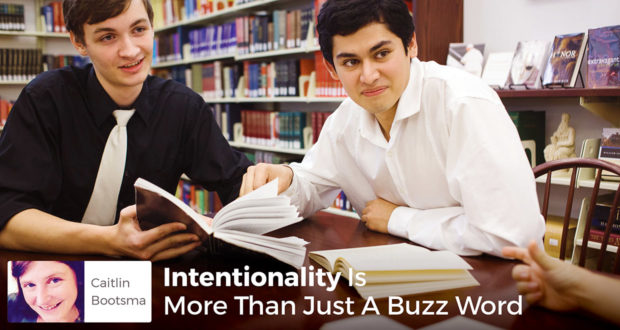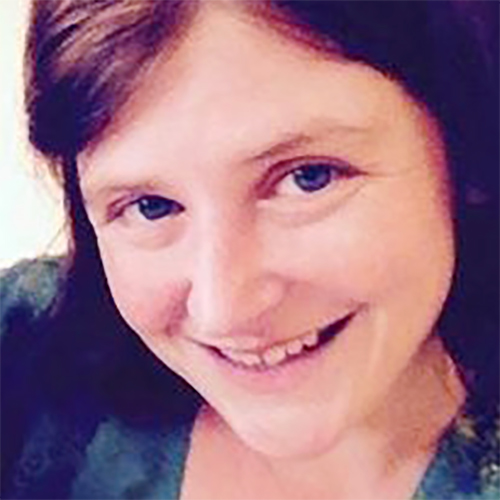Summary
Why be intentional about higher education? Caitlin Bootsma and Dr. George Harne talk about what intentionality means for students entering young adulthood.Perhaps you’re familiar with the word “intentionality”—or, if you are present on social media, you may even be sick of it. Modern society uses this term to express a desire to “live in the moment” or “act with purpose.”
Certainly, many of us can support the second, if not both, of these definitions. Yet while many strive to live intentionally, intentionality can be sadly lacking in the field of higher education. Many students go off to college to receive a degree, but their actual course of studies lacks direction, cohesion or even an ultimate purpose.
Of course, students do pursue majors in college, which grants them a specialization. This can give them a certain expertise, but will it prepare them for adult life on the whole?
Ironically, I’ve found that some of the people who laughed at my liberal arts education for not being specialized enough did not even end up in the field they studied so diligently for during their undergraduate studies. With many young people switching career paths more frequently than generations prior, this isn’t surprising.
For many students, then, might it be better to teach them how to engage in intellectual inquiry, how to analyze, how to pursue the truth regardless of the discipline?
Dr. George Harne, President of Northeast Catholic College (and homeschooling dad of five!), understands what Seton parents know so well—that an intentional curriculum is necessary for students’ intellectual formation. He explains why he has found the liberal arts to be a particularly solid foundation for a Catholic education.
If we do not have a clear academic and spiritual aim—one that can be evaluated for success or failure—how will we know whether we are succeeding or failing in our goals? From that aim we work backwards to build a coherent curriculum and collegiate culture. For our intellectual aim we draw upon the great tradition of the seven liberal arts, the curricula of the great Catholic universities, and the treasures of the Catholic intellectual tradition. We also consider the needs of the Church today and the intellectual formation required to meet those needs, particularly in the realm of evangelization and cultural formation. For our spiritual aim, we draw upon the spiritual traditions—particularly in the realms of prayer, liturgy, and sacraments—and the models of life given to us by the great saints. At Northeast Catholic College, St. John Paul II is a great model for young people who desire to flourish, living integrated lives of sacramental discipleship.
Without a coherent aim, of course, we fall prey to fads and the whims of the moment. Unfortunately, many Catholic institutions have submitted to these passing and sometimes destructive trends. Some of the most important things we can learn—the nature of the human person, the nature of reality, the truths of theology—may or may not be fashionable at a particular moment. But these truths and disciplines give order and shape not only to a true education but also to an authentic human life.
Without a well ordered curriculum in which theology (faithful to the Church’s teaching) and a true understanding of the human person have a central place, other disciplines that are secondary in importance will assert their own primacy, distorting themselves, and leading students astray.
At Northeast Catholic College we actively shape the students’ education in this way and toward integrated intellectual and spiritual goals so that they grow in wisdom and grace. The alternative is that they graduate with a grab-bag of facts from an incoherent mixture of disciplines and intellectual fads.

This idea of an intentional curriculum reflects what many of us see as the purpose of education, and is a wonderful way to form students in their faith. However, many may wonder if these high aims of education actually bear fruit in the professional world. I asked Dr. Harne about these concerns, and he told me a little bit about the post-graduation experiences of his students:
NCC has launched graduates across the country into a wide variety of vocations. Many of our students enter the priesthood and religious life while others take up positions in business, finance, education, and the arts. Just this summer, through our Career Pathways Program, we have placed interns in Manhattan and Boston as well as other locations. Recent graduates are also working in Cambridge and Princeton. In all of these contexts, our students (and their employers) discover that the intellectual formation that they have received prepares them effectively. Through the study of the Great Books and the classical liberal arts, students not only come to know Homer, Shakespeare, and classical Newtonian mechanics, they also learn to write and speak persuasively, analyze and synthesize information, solve problems, manage projects, lead teams, work independently, and do all of these things with confidence. Though it may seem paradoxical, the intellectual and spiritual formation that we offer is the best preparation we can give our students for success in the twenty-first century.
Are you convinced that you are preparing your children well for their future? How will your college search build upon the foundation you have laid for an education that truly has intentionality?
For more information about Northeast Catholic College, visit here.

 Seton Magazine Catholic Homeschool Articles, Advice & Resources
Seton Magazine Catholic Homeschool Articles, Advice & Resources

